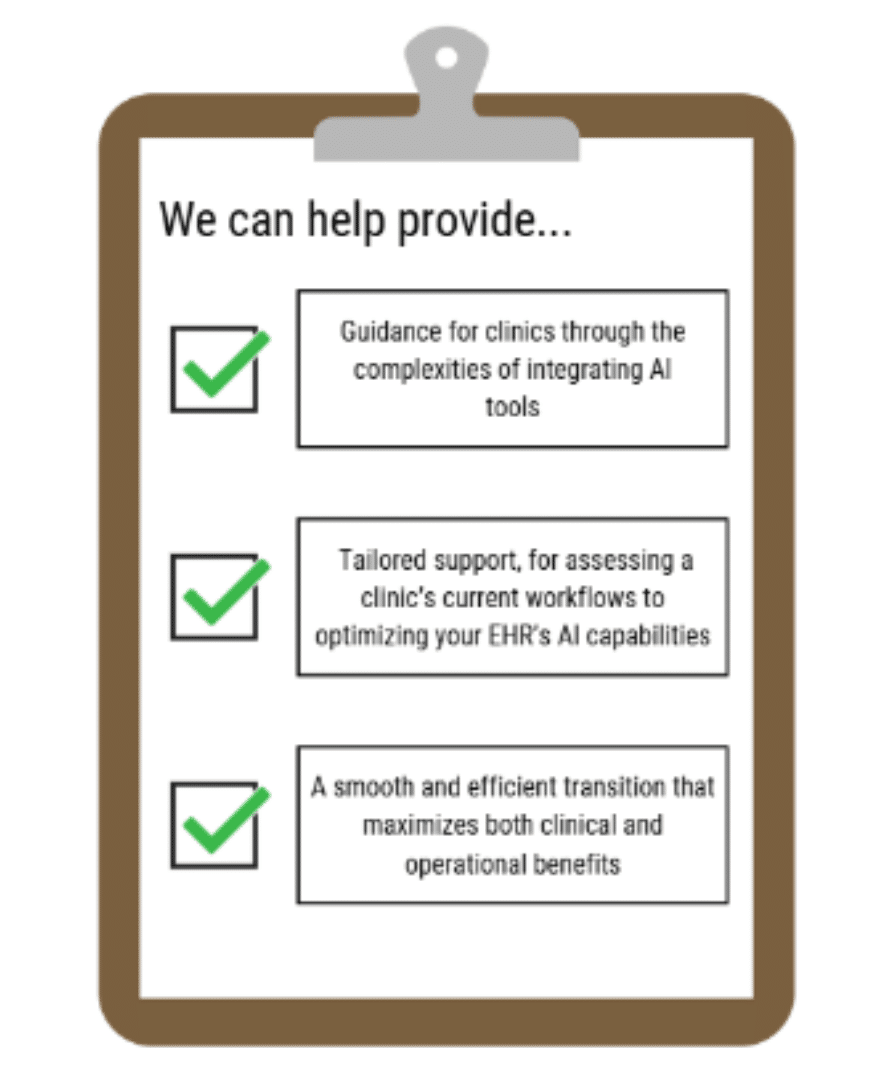Incorporating AI into EHR systems is increasingly important for healthcare clinics because it enhances the efficiency, accuracy, and overall functionality of their operations.
By integrating AI-driven tools, clinics can leverage advanced capabilities that improve patient care, streamline administrative processes, and support better decision-making. AI has the potential to transform many aspects of healthcare delivery, but it also requires careful consideration to ensure successful implementation.
Why AI in EHR Systems is a Game Changer for Healthcare Clinics
Improvement in Clinical Decision Support
One of the key benefits of AI in EHR systems is the improvement in clinical decision support. AI can analyze vast amounts of patient data in real time, offering personalized treatment recommendations based on patient history, symptoms, and predictive analytics.
This reduces diagnostic errors, aids early disease detection, and supports evidence-based treatment decisions, leading to better patient outcomes.
Additionally, AI enhances the efficiency of clinical workflows by automating time-consuming tasks like appointment scheduling, billing, and documentation, freeing up clinicians to focus more on patient care while reducing the administrative burden.
Identify High-Risk Patients for Proactive Interventions
AI also plays a critical role in population health management by analyzing data to identify high-risk patients and enabling proactive interventions. This helps clinics focus on preventative care, reducing hospital re-admissions and improving long-term health outcomes.
Natural Language Processing (NLP) capabilities allow AI to transcribe and organize physician notes from speech into structured data, simplifying documentation and reducing clinician burnout.
Moreover, AI can enhance patient engagement through personalized interactions, automated reminders, and tailored educational content, improving communication and satisfaction.
Optimizing RCM with AI-Powered EHR Systems
AI Training for EHR Technology Adoption
Training and adoption are critical for the successful implementation of AI in EHR systems. Staff must be properly trained to use new AI tools, and clinics should invest in comprehensive training programs to avoid resistance and ensure smooth integration into daily operations.
Areas of Caution When Using AI-Enhanced EHRs
Privacy & Security Concerns
AI also plays a critical role in population health management by analyzing data to identify high-risk patients and enabling proactive interventions. This helps clinics focus on preventative care, reducing hospital re-admissions and improving long-term health outcomes.
NLP capabilities allow AI to transcribe and organize physician notes from speech into structured data, simplifying documentation and reducing clinician burnout.
Moreover, AI can enhance patient engagement through personalized interactions, automated reminders, and tailored educational content, improving communication and satisfaction.
AI Algorithm Bias
Integration Challenges
AI Recommendations Without Human Oversight
AI Return on Investment
Is your electronic health record system helping your team deliver better care or holding them back? Discover how to modernize your EHR strategy to improve efficiency, user adoption, and patient outcomes. Download our free resource, Modernizing EHR Systems: A Strategic Guide to Improving Efficiency and Patient Care and take the first step toward a smarter, more connected healthcare organization.
How John Lynch & Associates Can Help You Implement AI in EHR Systems

We provide tailored support, from assessing a clinic’s current workflows to optimizing your EHR’s AI capabilities, such as predictive analytics, clinical decision support, and automation of administrative tasks.
By partnering with John Lynch & Associates, clinics can confidently implement AI-driven solutions that enhance patient care, improve workflow efficiency, and stay compliant with regulatory requirements. Contact us today to get started!
Ready to Talk?




